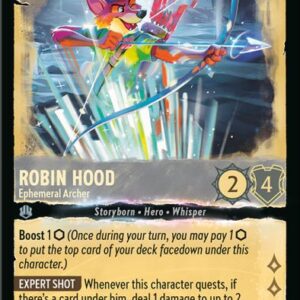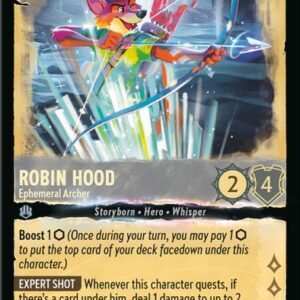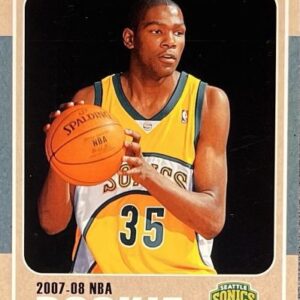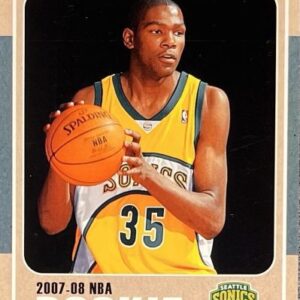Amid the neon colors and grit of an alternate universe struts Spider-Punk, a character that has burst their way out of Marvel Comics and into the hallowed halls of Magic: The Gathering with a defiant bang. When Wizards of the Coast unveiled their Spider-Man-themed Magic set without any pre-constructed Commander decks, there was a resounding sigh among veteran MTG players. The initial buzz felt dulled until Spider-Punk swung in, guitar ablaze, to disrupt the traditional gameplay that many had grown accustomed to.
Magic: The Gathering’s fan-favorite Commander format has long been a bastion for strategic depth, with decks meticulously crafted to execute nuanced plans teetering between cunning and unexpected brilliance. Enter Spider-Punk, a character who flips the script by doing what punk does best—decimating the status quo. This two-mana hit wonder isn’t here for pleasantries; he brings an element of raw, unfiltered chaos to the game, making players re-evaluate strategies on both sides of the table.
One of the most exciting elements of Spider-Punk is his Riot ability, which allows him to enter the battlefield with either haste or a +1/+1 counter, depending on your preference and strategic demands. Yet, it’s not his modest size or swift stride that’s making headlines; it’s his uncanny ability to rewrite the rules of engagement with a single stroke. Once Spider-Punk takes the stage, the game itself bends to his will: no spells or abilities can be countered, and damage can’t be prevented. For a split second, there’s the illusion of utter chaos—and therein lies its beauty.
The card taps into the raw power of red disruption and has already split the community between those who see its potential and those who view it as a double-edged sword. On one hand, allies might see their meticulously planned defenses vaporize in the annals of nothingness, no Counterspell, no Teferi’s Protection, not even the mythical sanctuary offered by The One Ring can shield the unprepared from Spider-Punk’s cacophony. It’s Mutually Assured Destruction for Magic players, and some wouldn’t have it any other way.
Risk, however, lurks in the shadows. Spider-Punk’s equal treatment means that while you clear the path for a groundbreaking victory during your turn, the moment your possessions end, the tides may turn, and your adversaries—empowered by his very presence—could capitalize on the absence of countermeasures. Their silent but deadly spells and effects unleashed in blitzkrieg response, an opportunity not to be missed, as Spider-Punk’s own diminutive 2/2 stature makes him vulnerable to any removal your foes deemed worthy of inclusion.
Regardless of these risks, the demand for Spider-Punk is rocketing to stratospheric heights. Collectors are currently preselling standard copies in the low twenties, while foiled editions glisten at values reaching a hefty sixty dollars. intrepid collectors boast special borderless editions priced between a princely forty-eight to fifty-five dollars. It seems everyone wants a piece of the punk revolution—even if it means tearing up the old playbook.
Yet, this innovative set isn’t all about Spider-Punk’s rebellious escapades. Tucked within its folds like treasures in a pirate’s chest are other formidable creations waiting to stake their claim within the Hall of Fame of Magic cards. The Soul Stone has emerged as a top chase card, recognized for its indestructible mana rock properties that double as a powerful reanimation engine, offering deckbuilders unprecedented robustness.
Meanwhile, Doctor Octopus offers sharp-witted players a potential Villain tribal commander, his eight metaphorical arms flinging card draw into the hands of the strategic. The Green Goblin redefines Mayhem with his discard-centered ability that turns seemingly futile castaways into fearsome, playable threats, rewriting strategies for those daring enough to embrace his madcap chaos.
Spider-Punk’s insertion into the realm of Magic potentially signals a noteworthy evolution within the Commander format. His existence prompts players to rethink notions of inevitability, to question reliance on invincible stalwarts and instead embrace the volatility of a world where every card has to adapt or be cast aside. This punk may well redefine what it means to wield power within the arena of Magic, creating ripples of change through spellbook aficionado circles worldwide.
So as Commander players adjust to a landscape that’s suddenly sounding a lot more like a rock concert and less like a chess match, the question isn’t whether Spider-Punk will change the way the format is played. It’s how much louder the echoes will be, the next time the riff rings out, challenging and inspiring a community with punk’s disruptive swagger.






